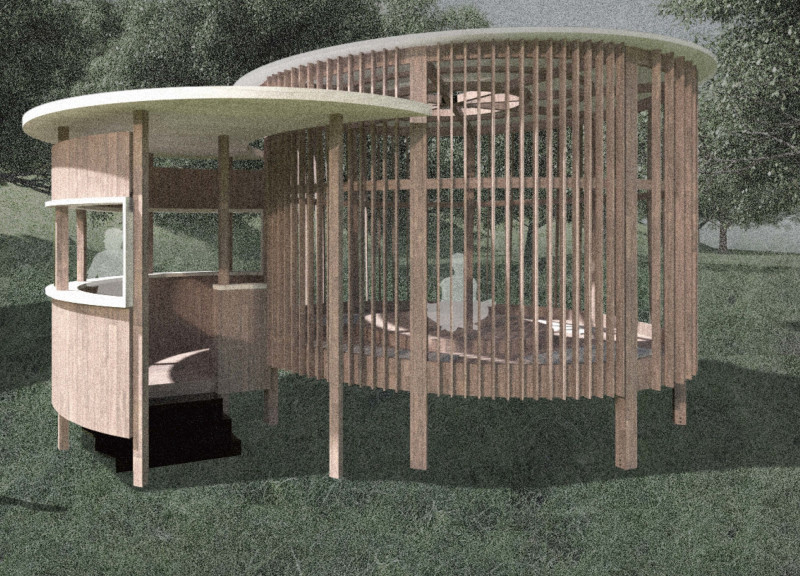5 key facts about this project
The meditation cabin project provides a calm space designed for reflection and self-discovery. Located in a natural setting, the structure serves as a dedicated area for mindfulness practices. The design concept focuses on enhancing sensory experiences, allowing users to better understand themselves and the environment around them. This integration of light, space, and material creates an inviting atmosphere for meditation.
Spatial Configuration
The layout of the cabin carefully leads individuals from the outside world into the inner meditation area. Once inside, users find themselves in a space that encourages focus and calmness. The arrangement is deliberate, minimizing distractions and guiding users into a state of contemplation. The design fosters a connection to the natural surroundings, further supporting the meditative experience.
Panel Design
A key feature of the cabin is the panelled frame, which introduces a play of light and shadow. The panels are arranged to let natural light enter the space at different angles and intensities. This not only adds visual interest but also helps create a tranquil atmosphere. Louvers are included in the design to manage the light, enhancing the ability of users to engage with their meditation practice.
Seating Arrangements
Seating is thoughtfully designed to meet various preferences for meditation. Users can choose from areas that offer isolation from distractions or spots that enhance a connection with nature. This flexibility acknowledges that everyone has different ways of meditating. Comfort is prioritized, which further aids in achieving mindfulness during practice.
Material Selection
The materials used in the cabin contribute significantly to its inviting nature. Wood flooring adds warmth and a sense of comfort. Straw panels and wood cladding provide insulation, which helps maintain good air quality within. Timber construction adds stability to the design while blending well with the natural landscape.
A central translucent circle in the roof design allows for natural light to enter while creating a view of the sky above. This feature connects the indoor and outdoor environments, enhancing the experience of those meditating inside.





















































